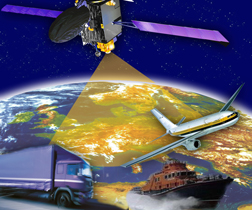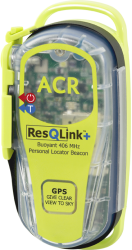Designed to complement ground-based augmented signals, the new EGNOS Safety of Life Assisted Service for Maritime Users (ESMAS) adds an additional layer of protection against GNSS signal errors, while also increasing signal accuracy and ensuring integrity.
While GNSS remains the primary means of obtaining positioning, navigation and timing information while at sea, users in the maritime realm generally employ augmentation services provided by ground-based technologies such as differential GNSS (DGNSS), which correct GNSS errors and thus provides more accurate positioning information.
In a recent communication form the Europe Union Agency for the Space Program (EUSPA), the agency’s Executive Director Rodrigo da Costa said the new ESMAS provides GNSS augmentation in areas where DGNSS services are unavailable, not deployed or are beyond the maritime user’s range.
ESMAS is delivered via existing EGNOS space based and ground-based facilities and does not require any additional infrastructure. Thus, it is well-positioned to support navigation on the open sea and in coastal waters, covering harbor approaches and entrances.
Free for all
ESMAS is provided openly and freely, accessible without any direct charge. It is available via all SBAS-enabled GNSS receivers developed in accordance with International Electrotechnical Commission (IEC) standards. With such a receiver, users can navigate with increased accuracy and get GNSS error warnings.
EGNOS also interfaces with NAVAREA coordinators, to provide timely maritime safety information (MSI), including navigation warnings and other urgent safety related messages that are broadcast to ships through conventional channels.
Da Costa said ESMAS is targeted specifically towards aiding merchant vessels, but it is also available to all other SOLAS-conforming vessels from EU Member States and EGNOS contributing countries, including Iceland, Norway and Switzerland. Unlike other EGNOS services, which are delivered by ESSP under contract with EUSPA, ESMAS is to be delivered directly by EUSPA.
An ESMAS webpage includes information about real-time service performance and historical performance, along with all relevant documentation, e.g. service definition document (SDD), service notices, etc. Users can also ask service-related questions via the site’s helpdesk.






